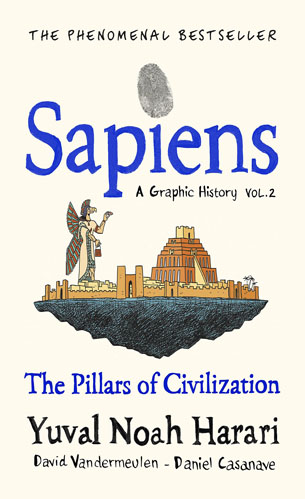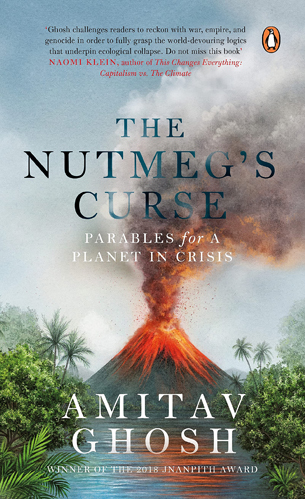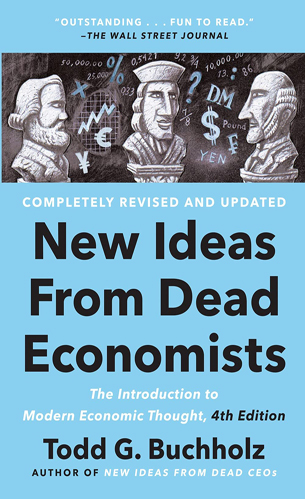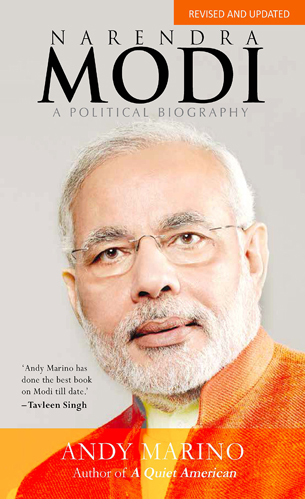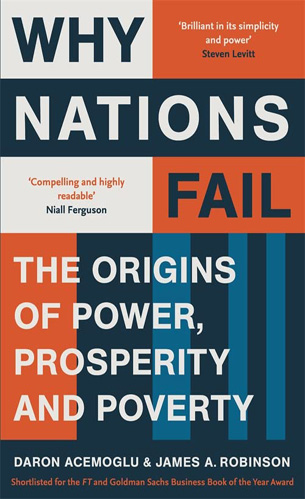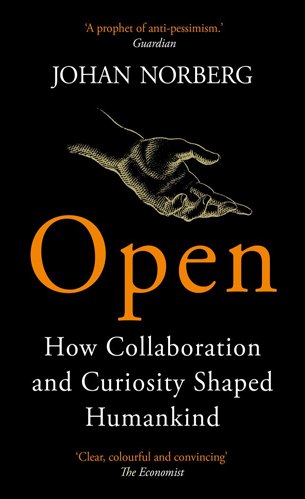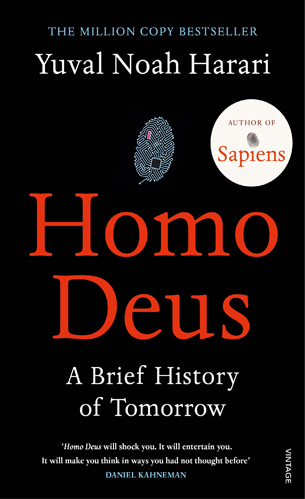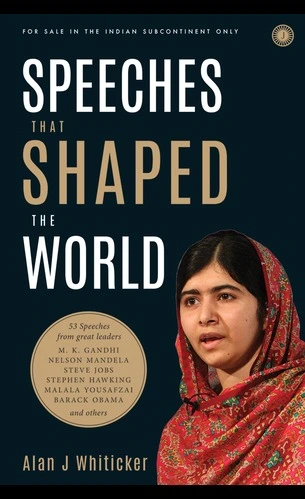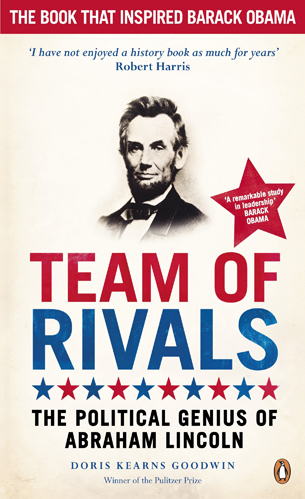Category
- Discounted Books
- English Book Bundles
- University Magazines
- சிறுவர்களுக்கான புத்தகங்கள்
- Children Books
- English Books
- Current Affairs
- Military & Intelligence
- Short Stories
- Fiction
- Poetry
- Environment & Nature
- Science
- Medicine
- Linguistics
- Atheism & Agnosticism
- (Auto)Biography & Memoir
- Business & Management
- Creativity
- Economics
- Education & Research
- Health & Nutrition
- History
- Humor
- Love & Relationships
- Parenting
- Personal Development
- Personal Finance
- Philosophy
- Politics
- War
- Psychology
- Religion & Spirituality
- Society & Culture
- Sports
- Travel & Adventure
- Technology & the Future
- True Crime
- Women Empowerment
- தமிழ் Books
- Book Bundles ( தமிழ் )
- சட்டம்
- இயற்கை
- கட்டுரை
- கணிதம்
- பயணக்குறிப்புகள்
- விவசாயம்
- அரசியல்
- ஆரோக்கியம்
- உளவியல்
- புனைவு
- காதல் மற்றும் உறவு
- சமூகவியல்
- சுயசரிதைகள் மற்றும் நினைவுகள்
- சுயமுன்னேற்றம்
- தத்துவஞானம்
- தொழில்நுட்பம் & எதிர்காலம்
- பொருளாதாரம்
- போர்
- பணம்
- மதம் & ஆன்மீகம்
- வணிகம் & மேலாண்மை
- வரலாறு
- விஞ்ஞானம் & பிரபல அறிவியல்
- விளையாட்டு
- சினிமா
- கவிதைகள்
- குழந்தை வளர்ப்பு
- குற்றம்
- மருத்துவம்
- மொழி
Product categories
- Children Books
- Discounted Books
- English Book Bundles
- English Books
- (Auto)Biography & Memoir
- Atheism & Agnosticism
- Business & Management
- Creativity
- Current Affairs
- Economics
- Education & Research
- Environment & Nature
- Fiction
- Health & Nutrition
- History
- Humor
- Linguistics
- Love & Relationships
- Medicine
- Military & Intelligence
- Parenting
- Personal Development
- Personal Finance
- Philosophy
- Poetry
- Politics
- Psychology
- Religion & Spirituality
- Science
- Short Stories
- Society & Culture
- Sports
- Technology & the Future
- Travel & Adventure
- True Crime
- War
- Women Empowerment
- University Magazines
- சிறுவர்களுக்கான புத்தகங்கள்
- தமிழ் Books
- Book Bundles ( தமிழ் )
- அரசியல்
- ஆரோக்கியம்
- இயற்கை
- உளவியல்
- கட்டுரை
- கணிதம்
- கவிதைகள்
- காதல் மற்றும் உறவு
- குற்றம்
- குழந்தை வளர்ப்பு
- சட்டம்
- சமூகவியல்
- சினிமா
- சுயசரிதைகள் மற்றும் நினைவுகள்
- சுயமுன்னேற்றம்
- தத்துவஞானம்
- தொழில்நுட்பம் & எதிர்காலம்
- பணம்
- பயணக்குறிப்புகள்
- புனைவு
- பொருளாதாரம்
- போர்
- மதம் & ஆன்மீகம்
- மருத்துவம்
- மொழி
- வணிகம் & மேலாண்மை
- வரலாறு
- விஞ்ஞானம் & பிரபல அறிவியல்
- விளையாட்டு
- விவசாயம்
Sapiens A Graphic History, Volume 2: The Pillars of Civilization
Rs. 5,490.00

Yuval Noah Harari
“Sapiens A Graphic History, Volume 2: The Pillars of Civilization” is the second installment in a graphic novel adaptation of the bestselling book “Sapiens: A Brief History of Humankind” by historian Yuval Noah Harari. Co-authored by David Vandermeulen and illustrated by Daniel Casanave, the book was published in 2021 and delves into the major developments and transformations that have shaped human civilization from ancient times to the present day. The graphic novel explores the emergence of empires, the rise of science and technology, and the impact of religion, politics, and culture on human societies. Harari’s original book has been widely praised for its insightful and provocative take on human history, and the graphic novel adaptation brings this seminal work to a new audience in a visually stunning and engaging format.
Out of stock
Notify me when stock available
About the Author
Prof Yuval Noah Harari has a PhD in History from the University of Oxford and now lectures at the Hebrew University of Jerusalem, specialising in World History. Sapiens: A Brief History of Humankind has become an international phenomenon attracting a legion of fans from Bill Gates and Barack Obama to Chris Evans and Jarvis Cocker, and is published in 65 languages worldwide. It was a Sunday Times Number One bestseller and was in the Top Ten for over nine months in paperback. His follow-up to Sapiens, Homo Deus: A Brief History of Tomorrow was also a Top Ten Bestseller and was described by the Guardian as ‘even more readable, even more important, than his excellent Sapiens‘. 21 Lessons for the 21st Century, was a Number One Bestseller and was described by Bill Gates as ‘fascinating’ and ‘crucial’. Harari worked closely with renowned comics illustrator Daniel Casanave and co-writer David Vandermeulen to create his latest book, an adaptation of his first bestseller, Sapiens Graphic Novel: Volume 1.
Book Specifications
Title: Sapiens A Graphic History, Volume 2: The Pillars of Civilization
Author: Yuval Noah Harari
Language: English
Binding: Paperback
Pages: 256
Weight: 1Kg 320g
Published Year:2021
Publisher: Jonathan Cape
ISBN: 978-1787333765
Dimensions: 21 x 2.8 x 28.3 cm
Print size: Please feel free to drop us a message.
Related products
-
Jesus Lived in India: His Unknown Life Before and After the Crucifixion
Rs. 1,690.00or 3 X Rs.563.33 with Read more
Read moreHolger Kersten
Jesus Lived In India is a book by theologian, Holger Kersten, which presents the connection that Jesus had with India. It cites evidence that Jesus lived in India for a large part of his life after the crucifixion and died there at old age. The book asks its readers the question of why Christianity chose to ignore it’s connections with the religions of the east.
Historical sites traced back Jesus to Israel, the Middle East, Afghanistan, and India. According to this book, this had been found out as a result of investigative research. Many startling conclusions have been presented by Holger Kersten.
Some of the allusions made by this book include statements that Jesus followed the ancient Silk Road to India and studied Buddhism there, adopting its tenets in order to become a master of spirituality. This book states that he survived the crucifixion, and after that returned to India where he finally died in Jammu & Kashmir.
Key Features:
- The book is based on research by Holger Kersten.
- It was not well-received by the mainstream scholarship.
- Jesus In India was originally a treatise written by Mirza Ghulam Ahmad.
-
Mossad: The Great Operations of Israel’s Secret Service
Rs. 2,690.00or 3 X Rs.896.67 with Read more
Read moreMichael Bar-Zohar & Nissim Mishal
The Mossad is universally recognized today as the greatest intelligence service in the world. It is also the most enigmatic one, shrouded in a thick veil of secrecy. Many of its fascinating feats are still unknown; most of its heroes remain unnamed. Here, for the first time the veil is lifted by two Israeli authors.
From the famous cases – – the kidnapping of Eichmann from Argentina, the systematic tracking down of those responsible for the Munich Massacre – to lesser-known episodes, shrouded in darkness, this extraordinary book describes the dramatic, largely secret history of the Mossad, and the Israeli intelligence community. It examines the covert operations, the targeted assassinations, the paramilitary operations within and outside Israel. It also reveals the identities of the best Mossad agents and leaders, whose personal stories are interwoven with the great Mossad operations.
-
The Nutmeg’s Curse: Parables for a Planet in Crisis
Rs. 2,990.00or 3 X Rs.996.67 with Read more
Read moreAmitav Ghosh
What do you do when the subject matter of life on this planet seems to lack . . . life? Your read The Nutmeg’s Curse, which eschews the leaden language of climate expertise in favor of the re-animating powers of mythology, etymology, and cosmology. Ghosh challenges readers to reckon with war, empire, and genocide in order to fully grasp the world-devouring logics that underpin ecological collapse. We owe a great debt to his brilliant mind, avenging pen, and huge soul. Do not miss this book-and above all, do not tell yourself that you already know its contents, because you don’t. — Naomi Klein, author of This Changes Everything: Capitalism vs. The Climate
In this brilliant book, aflame with insight and moral power, Ghosh shows that in the history of the nutmeg lies the path to our planetary crisis, twisting through the horrors of empire and racial capitalism. The Nutmeg’s Curse brings to life alternative visions of human flourishing in consonance with the rest of nature-and reminds us how great are the vested interests that obstruct them. — Sunil Amrith, author of Unruly Waters
The Nutmeg’s Curse elegantly and audaciously reconceives modernity as a centuries-long campaign of omnicide, against the spirits of the earth, the rivers, the trees, and even the humble nutmeg, then makes an impassioned argument for the keen necessity of vitalist thought and non-human narrative. With sweeping historical perspective and startling insight, Ghosh has written a groundbreaking, visionary call to new forms of human life in the Anthropocene. An urgent and powerful book. — Roy Scranton, author of Learning to Die in the Anthropocene: Reflections on the End of a Civilization
It’s widely recognized that the climate crisis is multi-dimensional, yet American cultural conversations about it are mostly stuck in its scientific, technological, and economic dimensions. In this tour de force, Amitav Ghosh defiantly moves the conversation into the realms of history, politics, and culture, insisting that we will never resolve our planetary crisis until we acknowledge that the “great acceleration” of the past fifty years is part of a larger historical pattern of omnicide. For centuries, the dominant global powers have seen Earth–its plants, its animals, and its non-white peoples–as brute objects: mute, without agency, and available for the taking and killing. The solution to the climate crisis, Ghosh insists, is not injecting particles into the stratosphere to block the sun, or even to build a bevy of solar farms (as important as the latter is). Rather, the solution lies in re-engaging with the vital aspects of life, in all its capaciousness, and in doing so move past our long history of destruction and into true sustainability. — Naomi Oreskes
-
New Ideas from Dead Economists: The Introduction to Modern Economic Thought
Rs. 2,490.00or 3 X Rs.830.00 with Read more
Read moreTodd G. Buchholz
“If you read only one economics book this year, read this one.” —Larry Summers, secretary of the Treasury under President Clinton, director of the National Economic Council under President Obama
“Outstanding . . . fun to read.” —The Wall Street Journal
An entertaining and widely-praised introduction to great economic thinkers throughout history, now in its fourth edition, with updates and commentary on the 2020 “great cessation,” Trump and Obama economic policies, the dominance of Amazon, and many other timely topics.
-
Narendra Modi: A political Biography
Rs. 2,690.00Original price was: Rs. 2,690.00.Rs. 2,390.00Current price is: Rs. 2,390.00.or 3 X Rs.796.67 with Read more
Read moreAndy Marino
‘Andy Marino has done the best book on Modi to date. It is the only biography that gives an unbiased view of who Modi is.’ –Tavleen Singh
‘This political biography analyses the contrasting views on the Gujarat model of governance with detailed statistical inputs to provide a balanced account. Personal details of Modi’s early life, his rise through the political ranks, and his personal philosophy on religion and politics are revealed in this fast-paced, revelatory and readable book.” – The Financial Express
*Containing exclusive details… this book strives to present a fair picture of the man behind Gujarat’s transformation. [The] biography promises to give readers an insight into the inner workings of Modi’s methods of governance.’ — The New Indian Express, Chennai
‘Andy Marino’s biography stands out in providing a balanced and factually objective account.’ — Deepak Lal, James S. Colman Professor Emeritus of International Development Studies at the University of California, Los Angeles, in Financial Times, London
‘The uniqueness of Andy Marino’s portrayal is that he has got the subject himself to talk about his life and times. (He) throws light on key details most other biographers have either consciously avoided or just glossed over … . [The] most holistic biography of Narendra Modi since 2002.’ — Abhiram Ghadyalpatil
-
Why Nations Fail: The Origins of Power, Prosperity, and Poverty
Rs. 4,690.00or 3 X Rs.1,563.33 with Add to cart
Add to cartDaron Acemoglu and James A. Robinson
Buy why nations fail and get it delivered to your doorstep.
“You will have three reasons to love this book. It’s about national income differences within the modern world, perhaps the biggest problem facing the world today. It’s peppered with fascinating stories that will make you a spellbinder at cocktail parties—such as why Botswana is prospering and Sierra Leone isn’t. And it’s a great read. Like me, you may succumb to reading it in one go, and then you may come back to it again and again.” —Jared Diamond, Pulitzer Prize–winning author of the bestsellers Guns, Germs, and Steel and Collapse
“For economics and political-science students, surely, but also for the general reader who will appreciate how gracefully the authors wear their erudition.”—Kirkus Reviews
“Why Nations Fail is a wildly ambitious work that hopscotches through history and around the world to answer the very big question of why some countries get rich and others don’t.” —The New York Times (Chrystia Freeland)
“Why Nations Fail is a splendid piece of scholarship and a showcase of economic rigor.” —The Wall Street Journal
“This is an intellectually rich book that develops an important thesis with verve. It should be widely read.” —Financial Times
“Why Nations Fail is a truly awesome book. Acemoglu and Robinson tackle one of the most important problems in the social sciences—a question that has bedeviled leading thinkers for centuries—and offer an answer that is brilliant in its simplicity and power. A wonderfully readable mix of history, political science, and economics, this book will change the way we think about economic development. Why Nations Fail is a must-read book.” —Steven Levitt, coauthor of Freakonomics
“Some time ago a little-known Scottish philosopher wrote a book on what makes nations succeed and what makes them fail. The Wealth of Nations is still being read today. With the same perspicacity and with the same broad historical perspective, Daron Acemoglu and James Robinson have retackled this same question for our own times. Two centuries from now our great-great- . . . -great grandchildren will be, similarly, reading Why Nations Fail.” —George Akerlof, Nobel laureate in economics, 2001
“It’s the politics, stupid! That is Acemoglu and Robinson’s simple yet compelling explanation for why so many countries fail to develop. From the absolutism of the Stuarts to the antebellum South, from Sierra Leone to Colombia, this magisterial work shows how powerful elites rig the rules to benefit themselves at the expense of the many. Charting a careful course between the pessimists and optimists, the authors demonstrate history and geography need not be destiny. But they also document how sensible economic ideas and policies often achieve little in the absence of fundamental political change.”—Dani Rodrik, Kennedy School of Government, Harvard University
-
Open: How Collaboration and Curiosity Shaped Humankind
Rs. 3,690.00Original price was: Rs. 3,690.00.Rs. 2,890.00Current price is: Rs. 2,890.00.or 3 X Rs.963.33 with Read more
Read moreJohan Norberg
- AN ECONOMIST BOOK OF THE YEAR
“No person or society is smart enough or wise enough or noble enough to solve the wicked problems of life by themselves. With clarity and grace, Johan Norberg reminds us that openness to things and ideas from others is the only route to well-being..” –Steven Pinker, author, Enlightenment Now
“If we are to recover from the pandemic of 2020, the world needs openness more than ever: open minds, open hearts, open communications, open markets. Johan Norberg’s superb book demonstrates, with hundreds of examples, how openness has been the key to the success of our species over 10,000 years and is the secret of prosperity and peace today.” –Matt Ridley, author, The Rational Optimist
“Johan Norberg has a great story to tell: how, throughout history, open societies have always closed down, but never for good. The tension between closed and open, between trading and tribalism drives both progress and reaction. Why are the virtues and benefits of openness always under threat? We can’t live without it, yet too often it seems that we can’t live with it either. Norberg has a powerful argument to give us insight and hope that man’s curiosity and imagination is unstoppable.” –Margaret Heffernan, author, Beyond Measure
“Norberg reminds us that every great civilization has been destroyed by the end of openness. His essential book, then, is a timely reminder that the fate of our civilization rests on a defense of openness. Strongly recommended.” –Andrew Keen, author, The Internet Is Not The Answer
Clear, colourful and convincing, marshalling evidence from a range of eras and civilisations. […] The author is often amusing as well as illuminating. ― The Economist
Norberg has a strong case and he makes it with energy and charm. A pertinent book for grumpy times. ― The Times on Progress
-
Homo Deus: A Brief History of Tomorrow
Rs. 3,290.00or 3 X Rs.1,096.67 with Add to cart
Add to cartYuval Noah Harari
**THE MILLION COPY BESTSELLER**
NEW YORK TIMES BESTSELLER
Wellcome Book Prize Nominee for Longlist (2017)
“Homo Deus will shock you. It will entertain you. Above all, it will make you think in ways you had not thought before.” — Daniel Kahneman, author of Thinking Fast, and Slow
“Thrilling to watch such a talented author trample so freely across so many disciplines… Harari’s skill lies in the way he tilts the prism in all these fields and looks at the world in different ways, providing fresh angles on what we thought we knew… scintillating.” — Financial Times
“Spellbinding… This is a very intelligent book, full of sharp insights and mordant wit… It is a quirky and cool book, with a sliver of ice at its heart… It is hard to imagine anyone could read this book without getting an occasional, vertiginous thrill.” — Guardian
“Harari is an intellectual magpie who has plucked theories and data from many disciplines – including philosophy, theology, computer science and biology – to produce a brilliantly original, thought-provoking and important study of where mankind is heading.” — Evening Standard (London)
“I enjoyed reading about these topics not from another futurist but from a historian, contextualizing our current ways of thinking amid humanity’s long march–especially…with Harari’s ability to capsulize big ideas memorably and mingle them with a light, dry humor…Harari offers not just history lessons but a meta-history lesson.” — Washington Post
“What elevates Harari above many chroniclers of our age is his exceptional clarity and focus.” — London Sunday Times
“A remarkable book, full of insights and thoughtful reinterpretations of what we thought we knew about ourselves and our history.” — The Guardian
“Provocative…the handiwork of a gifted thinker.” — Jennifer Senior, New York Times
“[A] great book…not only alters the way you see the world after you’ve read it, it also casts the past in a different light. In Homo Deus, Yuval Noah Harari shows us where mankind is headed in an absolutely clear-sighted & accessible manner.” — Mail on Sunday
-
Speeches that Shaped the World
Rs. 1,690.00or 3 X Rs.563.33 with Read more
Read moreAlan J. Whiticker
53 Speeches from great leaders M. K. GANDHI, NELSON MANDELA, STEVE JOBS, STEPHEN HAWKING, MALALA YOUSAFZAI, BARACK OBAMA and others. The passing of time allows many speeches to take on a deeper meaning and poignancy. Others have become an iconic part of our times.
Alan J. Whiticker’s Speeches that Shaped the World is a collection of the most potent and memorable speeches throughout history. These speeches highlight recurring themes such as politics and power, war and peace, civil rights and human rights. What they all have in common is the power to inspire—emotionally, politically and socially.In this brilliant collection, many of history’s greatest orators and pivotal moments are featured. These speeches shaped and changed the world. Different eras and many nations are represented, with several speeches from famous women—speeches of clarity and hope. Along with famous names like John F. Kennedy, Martin Luther King, Franklin D. Roosevelt, Winston Churchill, Mahatma Gandhi, Nelson Mandela, Margaret Thatcher and Hillary Clinton there are also lesser known orators who are remembered for making their mark on history.
-
Team of Rivals: The Political Genius of Abraham Lincoln
Rs. 2,990.00Original price was: Rs. 2,990.00.Rs. 2,690.00Current price is: Rs. 2,690.00.or 3 X Rs.896.67 with Read more
Read moreDoris Kearns Goodwin
- Benjamin Barondess Award (2006)
- Lincoln Prize (2006)
- New-York Historical Society American History Book Prize
- Winner of the Bostonian Society’s 2006 Bostonian History Award
- Finalist for the National Book Critics Circle Award for biography
- Finalist for the Los Angeles Times Book Prize in biography
A wonderful book … a remarkable study in leadership — Barack Obama
A brilliant book … I couldn’t get enough of it –– Alex Ferguson
Goodwin’s narrative abilities are on full display here. A portrait of Lincoln as a virtuosic politician and managerial genius — Michiko Kakutani ― New York Times
I have not enjoyed a history book as much for years — Robert Harris ― The Observer (Books of the Year)
The most uplifting book that I have read in the last two decades. Sensational — Jon Snow
“An elegant, incisive study of Lincoln and leading members of his cabinet that will appeal to experts as well as to those whose knowledge of Lincoln is an amalgam of high school history and popular mythology…. Goodwin has brilliantly described how Lincoln forged a team that preserved a nation and freed America from the curse of slavery.” -James M. McPherson, The New York Times Book Review
“A brilliantly conceived and well-written tour de force of a historical nar rative…. Goodwin’s contribution is refreshingly unique…. Goodwin’s emotive prose elevates this tome from mere popular history to literary achievement.” -Douglas Brinkly, The Boston Globe
“Goodwin finds her Lincoln hiding in plain view. He is Lincoln the politician, but one whose political shrewdness ends up being indistinguishable from wisdom. She has written a wonderful book. There is a man in it.” -Garry Wills, American Scholar
“A sweeping, riveting account… Put simply, Goodwin’s story of Lincoln’s great, troubled, triumphant life is a star-spangled, high-stepping, hat-waving, bugle-blowing winner.” – Daily News (New York)

